How to ask about someone’s personality in English?
If you want to know about somebody’s personality, What questions can you ask?
1. What is… like?
Well, you can say “what is… like?” and use the name of the person instead of the dots. For example:
- What is Jack like?
- What is your father like?
- What is your teacher like?
2. How would you describe…?
you can also use “How would you describe + (the name of the person)”. for example:
- How would you describe Jack?
- How would you describe your father?
- How would you describe the president of your country?
3. How do you see…?
The third question you can use is “how do you see + (the name of the person)”.
for example:
- How do you see Jack?
- How do you see the president of your country?
- How do you see your teacher?
Now that we know how to ask about somebody’s personality, what’s next? We need to learn to describe someone’s personality and to do so, we should learn some personality adjectives. Remember that adjectives and adverbs are one of the main parts of the English language. It’s really important to learn about them and use them correctly in sentences. We recommend you read the article named as ” How to improve English vocabulary ” on our website and memorize the mentioned techniques and use them correctly.
Personality adjectives in English
To talk about people’s personality, we need to use a “to be verb + personality adjective”. For example:
- I am funny.
- I am angry.
- I am sensitive.
to verb + the adjective
Now, let’s learn some personality adjectives with which you can describe anyone you like! To do so, I am going to answer 3 questions about personality:
1. How do you see yourself?
I am ambitious, self-confident, and generous. I’m also very impatient. some people like me. Others think I’m arrogant or maybe aggressive.
Let’s break down the vocabulary:
-
Ambitious
An ambitious person wants to be successful and reach the top. He or she loves improvement.
-
Self-confident
It means that you do not doubt your skills and your talents. You are sure that you are good enough.
-
Generous
A generous person is willing to help other people and likes to give more than they take. So, a generous person would give money to poor people because of their personality.
-
Impatient
An impatient person cannot wait. They get angry if they wait for something for a long time.
-
Arrogant
Arrogant people think that they are better than other people. A synonym for arrogant is “proud”. Nobody likes arrogant people. It is a negative personality trait.
-
Aggressive
An aggressive person is always angry and wants to argue.
Learn more: food vocabulary in English
2. How would you describe yourself?
I see myself as hard-working, honest, and tolerant of other people. You might probably think I’m a bit dull because I don’t have much sense of humor.
Let’s learn the new personality adjectives in this response:
-
Hard-working
A hard-working person is a person who works hard and who puts a lot of effort into what he or she does. A synonym for hard-working is “industrious”. Hard-working people are often successful!
-
Honest
An honest person never tells a lie. They tell the truth. Honesty is a very important personality trait. You don’t want to be friends with someone who isn’t honest, right?!
-
Tolerant
A tolerant person accepts other people’s ideas, even if they are against his or her own ideas. For example, I am a vegetarian, which means I only eat vegetables. a friend of mine loves hamburgers. I am tolerant, it doesn’t matter that we have different opinions about eating meat. We can still go out and have dinner together. We just have to order separately!
-
Dull
When we say somebody is dull, it means they are boring and not funny. Like my uncle who tells the dullest jokes! I wanna kill myself when I hear them. Last week, he told us this joke:
What did the fish say when it hit the wall? Dam!
-
Have a good sense of humor
If you have a good sense of humor, it means that you can tell good jokes and make other people laugh.
(have a good sense of humor is not an adjective. The adjective is “humorous”)
Read more: Read the article about health problems vocabulary in English
3. How do you see yourself?
I’m always cheerful and easygoing. I’m generally self-confident but I can be insecure sometimes.
Well, let’s see what these new English personality adjectives mean:
-
Cheerful
A cheerful person is always happy and positive. You enjoy spending time with them because they cheer you up (= make you happy).
-
Easygoing
If a person is easygoing, it means that they don’t care what other people are doing and live their own life. They go easy on themselves.
-
Insecure
Insecure is the opposite of self-confident. So, if you are insecure, you do not trust your skills and abilities. You don’t think that you are good enough to do something. You doubt yourself.
-
Charming
If you are a charming person, it means that other people enjoy being around you because you are very lovely and pleasant.
Learn more: How to describe a movie in English ?
Now that you are familiar with the words to describe personality and the ways of doing it, let’s watch a short funny video about these adjectives for personality and then categorize them into positive and negative groups.
Good personality adjectives:
How to describe someone’s personality in a positive way? In order to describe good personalities in English, you can use the following adjectives:
Kind:
Friendly, sympathetic, and considerate behavior are characteristics of a kind person.
Patient:
A patient person can handle delays or other challenges without becoming agitated while they wait.
Courageous:
A courageous person is brave and prepared to face difficulties or peril.
Responsible:
A responsible person accepts responsibility for their actions, keeps their word, and can be trusted.
Respectful:
A respectful person values diversity, listens to other viewpoints, and conducts themselves with decency toward others.
Empathetic:
An empathetic person understands and shares the feelings of others, showing compassion and support.
Optimistic:
An optimistic person has a positive outlook on life, focusing on possibilities and finding solutions.
Determined:
A determined person shows strong willpower and perseverance in pursuing their goals, even when faced with obstacles.
Outgoing:
Describes someone with a friendly, easy personality who gets on well with other people.
Example: My father is an outgoing person. He has a lot of friends and starts conversations with strangers easily.
Sociable:
Willing to talk and be friendly with other people.
Example: Kathie is a sociable person; She makes a lot of new friends during parties.
Gregarious:
Someone who is outgoing and enjoys spending time with others.
Example: Scarlet is a gregarious girl who loves travelling with her friend rather than her own.
Extroverted:
An extroverted person wants to go out and meet people.
Example: Jenny has an extroverted character. She enjoys communicating with her friends and even strangers.
Smart:
Someone who is clever and learns things so easily.
Example: John is a very smart student; he understands difficult questions easily.
Intelligent:
Someone who is smart and has a great ability to process and understand information.
Example: Jonathan is so intelligent. He has won several medals in scientific competitions.
Quick-witted:
Having the ability for coming up with new and effective ideas and solutions.
Example: John is a quick-witted worker; He always comes up with effective solutions.
Bright:
Someone who is smart or intelligent.
Example: I think Dominic is so bright. He could pass that difficult exam with a great score.
Polite:
Someone who shows respect for others in manners, speech, and behavior.
Example: She thought they were wrong but was too polite to say to them.
Courteous:
Someone who is so friendly and polite to others and shows concern for them.
Example: My grandpa was so courteous to children.
Affable:
Means friendly, pleasant, and easy to talk to.
Example: My affable host offered me something to drink and made me feel at home.
Frank:
Someone who is extremely honest and tells every truth even it makes others sad.
Example: Jenny was so frank with her colleague and told him that his report was not good.
Candid:
If you are candid your family and friends can trust your words completely.
Example: Jack is so candid. His parents believe whatever he says.
Benevolent:
Someone who tries seriously to help others by spending money or time.
Example: My grandpa was so benevolent. He spent half of his money on building houses for poor families.
Charitable:
Someone who is eager to help other people
Example: I have to say Mr. Smith is a charitable man with a big heart.
Now pay attention to the following conversation in which some of the abovementioned positive adjectives are used
Job interview
Interviewer: can you tell us about your personality?
B: Of course. I am a sociable person. I am really good at communicating with customers. People consider me an honest person. But sometimes I become so frank and tell the truth, even if it’s bothering to others.
Interviewer: Great! We need a gregarious person for the position. The position also needs you to come up with new ideas. But you have shown that you are intelligent.
B: yes. In my previous workplace, I was one of the most quick-witted workers.
Interviewer: So why did you quit the job (resign)?
B: Honestly the manager was not respectful to his worker. While he seemed generous outside the company, he did not give his employees enough salary. I want to work with courteous people.
Before learning about the negative adjectives to describe personality let’s watch another short funny video about these adjectives:
Learn more: Learning English has different challenges. One of them is the existence of confusing words. Read the article about the most common confusing words in English with examples and try to memorize them.
Negative personality adjectives:
How to describe someone’s personality in a negative way? In order to describe bad personalities in English, you can use the following adjectives:
Angry:
Someone who is eager to fight and shout at others.
Example: Our manager is an angry man. He always shouting at his employees.
Some synonyms for this adjective that can describe people more precisely are:
Belligerent:
If someone is belligerent, they’re eager to fight.
Example: Liverpool’s fans were so belligerent after their team lost the final game.
Example: My boss became so belligerent the company failed…
Hostile:
If something is hostile, it’s unfriendly. It can also be used for describing a situation, a group of people, or a nation.
Example: The teacher took a hostile manner toward his students
Selfish:
A selfish person only thinks about themselves and often disregards the needs and feelings of others.
Example: My younger sister is so selfish; he always thinks about her interests.
Some synonyms for this adjective that can describe people more precisely are:
Self-centered:
A self-centered person is extremely concerned with himself and his own needs.
Example: Rich people in my country are mainly concerned about their own needs.
Egoistic:
egotistic people believe we all put our own needs before those of others.
Example: During the vacation, John was so egotistic; he always wanted to stay in the best room and eat most of the food we had.
Stingy:
Someone who doesn’t want to spend money to help others.
Example: His grandpa was so stingy. He has a lot of money but he does not help poor people.
Some synonyms for this adjective that can describe people more precisely are:
Tightfisted:
Unwilling to spend money.
Example: Recently John has become too tightfisted. He didn’t buy a gift for even his girlfriend’s birthday party.
Parsimonious:
A parsimonious person is unwilling to spend a lot of money.
Example: Parsimonious people do not enjoy their money even if they are so rich. Simply because they don’t spend a penny of their money.
Naïve:
Someone who believes other people’s words and acts easily. This group of people can easily be fooled.
Example: Students were so naïve. They believed all the fake stories their teacher told them.
Gullible:
A gullible person can easily be tricked and deceived.
Example: Fred used to be a gullible guy; he would lend all of his salary to some of his colleagues who earned the same salary.
Conceited:
Someone who considers himself a very important person and does not respect others.
Example: The workers were fed up with the conceited manner of their boss.
Vain:
Vain people always admire their character and doings.
Example: Some vain celebrities do not stop admiring themselves.
Rude:
A rude person behaves in an unkind and disrespectful manner toward others.
Impatient:
An impatient person gets easily frustrated when things don’t happen quickly and finds it difficult to wait.
Dishonest:
A dishonest person lies, cheats, or otherwise behaves dishonestly, frequently in an effort to gain an advantage.
Lazy:
A lazy person avoids work or effort and prefers to do as little as possible.
Mean:
Someone who is mean willfully hurts others through their words or actions.
Pessimistic:
A pessimistic person has a negative outlook and tends to focus on the worst possible outcomes.
Disrespectful:
A disrespectful person shows a lack of consideration and courtesy towards others.
Let’s review some mentioned adjectives with the following conversation between two students
A: Why do you think our manager is so aggressive sometimes?
B: I don’t know! Maybe because he had hostile parents in his childhood, or a belligerent teacher at school!
A: or maybe he had a tightfisted father who did not spend money to make him happy!
B: But he does not behave aggressively all the time. He believes whatever we say so easily. He is so gullible!
A: I believe some conceited workers in the company make him angry sometimes. Some of our colleagues are so self-centered and just think about their interests.
In this lesson, we learned about positive and negative personality adjectives in English. Some of these adjectives were so simple that most of us have always heard about them. But some of them are advanced adjectives that native speakers use in their daily conversations. Let’s review the advanced ones in the following video:
At the end of this lesson, watch these two videos about the adjectives to describe personality. Watch them carefully and write down their text. Then practice it to stick in your mind!
Conclusion to the lesson: Personality adjectives in English
In this article, we learned how to describe someone’s personality and we also learned the most common words to describe personality. Let’s review them quickly:
| 1. Ambitious | 4. Impatient | 7. Hard-working | 10. Dull | 13. Easygoing |
| 2. Self-confident | 5. Arrogant | 8. Honest | 11. Humorous | 14. Insecure |
| 3. Generous | 6. Aggressive | 9. Tolerant | 12. Cheerful | 15. Charming |
We also categorized personal adjectives in English into two groups:
- Positive
- Negative
Let’s review the positive and negative words that describe the personality, which we learned in this lesson:
Positive adjectives that describe personality:
😊Kind
😊Patient
😊Courageous
😊Responsible
😊Respectful
😊Empathetic
😊Optimistic
😊Determined
😊Outgoing
😊Sociable
😊Gregarious
😊Extroverted
😊Intelligent
😊Quick-witted
😊Bright
😊Polite
😊Courteous
😊Affable
😊Honest
😊Frank
😊Candid
😊Generous
😊Benevolent
😊Charitable
Negative adjectives that describe personality:
😐Selfish
😐Rude
😐Impatient
😐Dishonest
😐Lazy
😐Mean
😐Pessimistic
😐Disrespectful
😐Belligerent
😐Aggressive
😐Hostile
😐Self-centered
😐Egoistic
😐Stingy
😐Tightfisted
😐Parsimonious
😐Naïve
😐Gullible
😐Arrogant
😐Conceited
😐Vain
Don’t forget the only way to be able to communicate with native speakers is to know a wide range of vocabulary and a high grammar level. Our online English course will definitely help you level up your English knowledge. Take this course and learn and practice English with teacher Maddy.
We have also another great course, specific for students who want to get a high score in the IELTS exam. The POC English online IELTS course is perfect for you! Take this course and get ready for this exam with the help of teacher Maddy.
And now, here is a question for you:
“How would you describe yourself? “ and ” How do your friends see you?”
Try to answer these questions, using English personality adjectives we’ve just learned in this article, and leave a comment below!
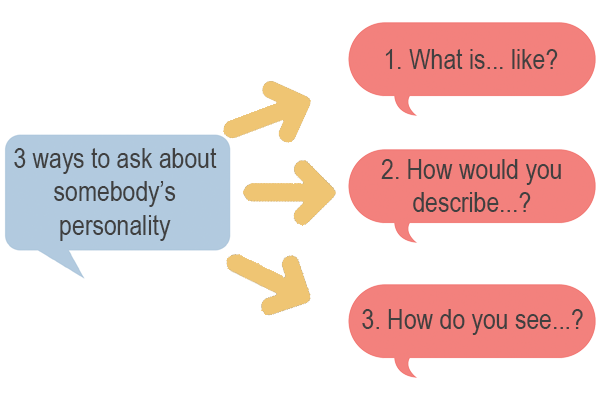


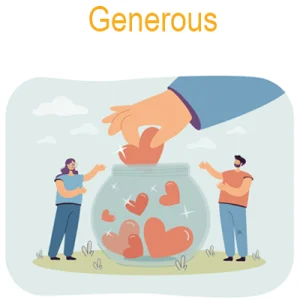
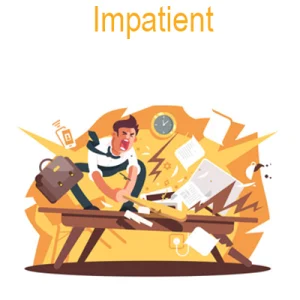
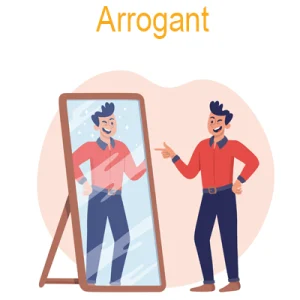





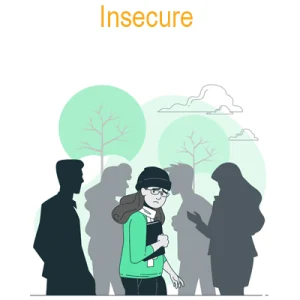







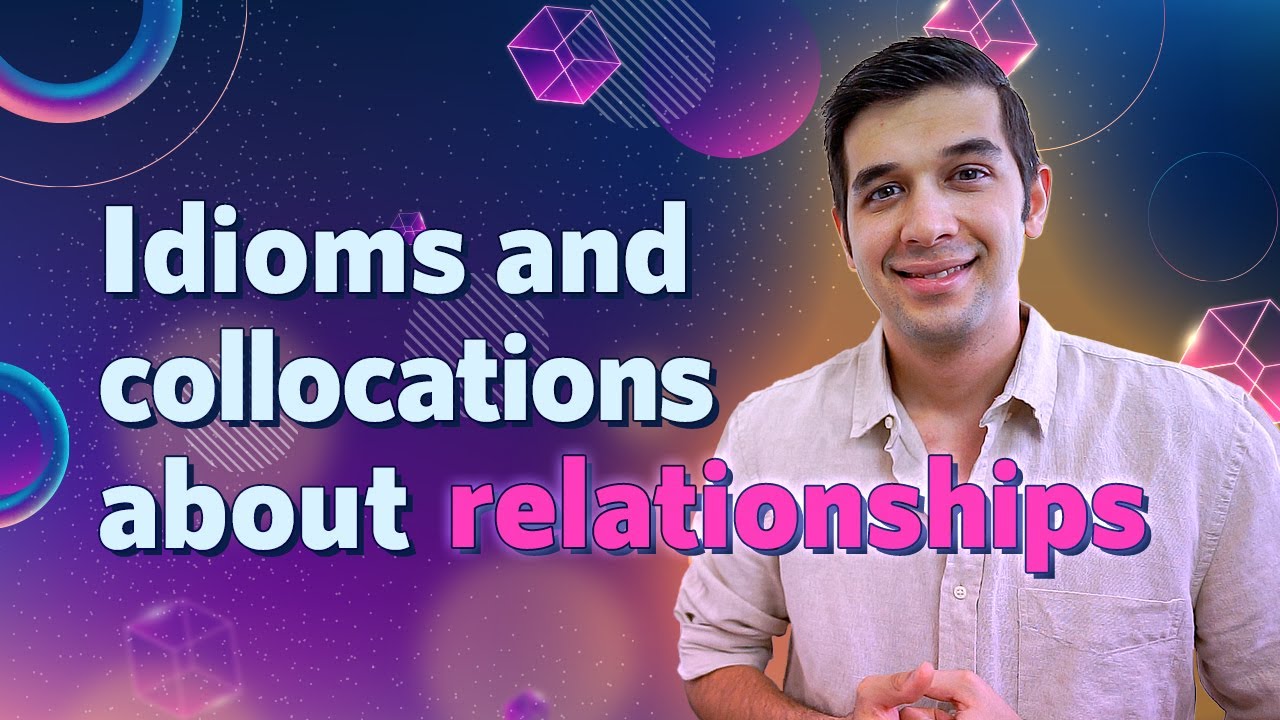


This lesson was fantastic and helped me improve my vocabulary and pronunciation.
Yes, this lesson was really amazing, and I learned a lot of new words
Thank you my bro ☺️ . you are the only best one i like to see and i like to learn the English language from you.thanks mady
Excellent Service
It was really fantastic
The way of u teaching is fabulous. 👌👌👌
You’re the one whom I admire dear colleague, I learn a lot with your videos
It is very interested to listen.and awesome teaching .I enjoyed very much .it is very useful in future.
Thanks a lot! You are really nice and sincere English mentor. I have been listening you’re video lectures form last week and feel good about my English learning process.
Thank you from Tauramena, Casanare, Colombia.
very interested lesson
Thank you from Bangladesh, grateful to you for presenting your lessons so beautifully, really helpful.